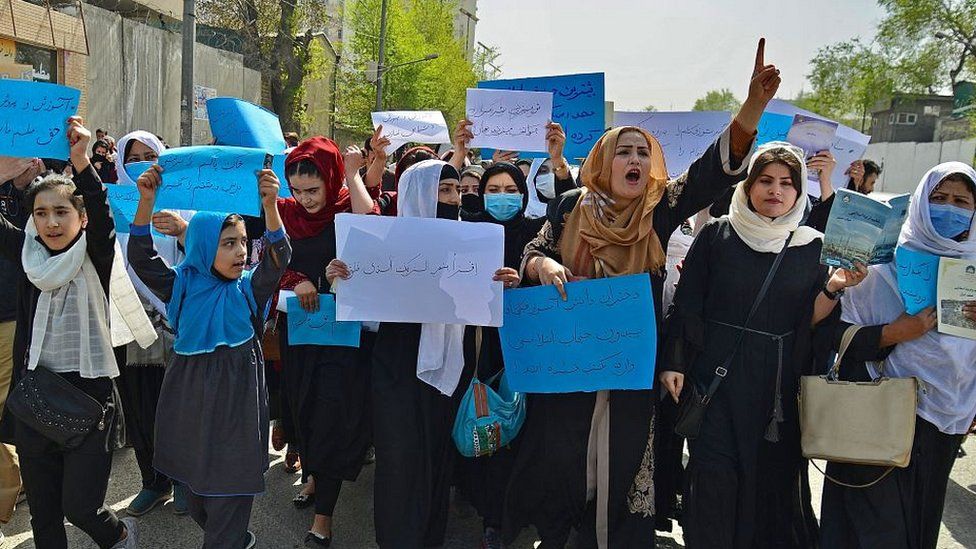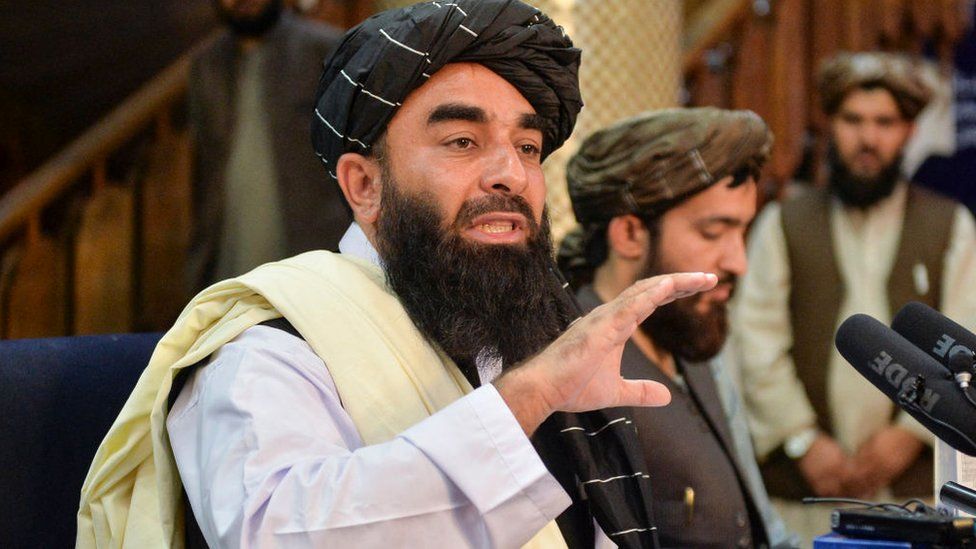Afghanistan: What’s changed a year after Taliban return
![]()
By Shruti Menon
BBC Reality Check
Afghanistan: What’s changed a year after Taliban return
By Shruti Menon
BBC Reality Check
- Published9 hours ago
Share
Related Topics

One year ago, the Taliban swept into the Afghan capital Kabul, as foreign forces hastily completed their withdrawal.
Speaking for the Taliban at the time, Zabihullah Mujahid made a number of pledges for the new government.
So has the regime lived up to its promises?
‘We are going to allow women to work and study…. women are going to be very active, but within the framework of Islam.’
The previous Taliban regime, in the 1990s, severely curtailed women’s freedom – and since the takeover of power by the Taliban last year, a series of restrictions have been re-imposed on women in Afghanistan.
Regulations on clothing and laws forbidding access to public areas without a male guardian have been enforced.
In March, schools re-opened for a new academic year, but the Taliban reversed an earlier promise and girls are currently not permitted to attend secondary school.
The Taliban has blamed a lack of female teachers and the need to arrange the segregation of facilities.
This has affected an estimated 1.1 million pupils, according to the UN and has provoked widespread international criticism.
Primary school education for girls has been permitted.

Some public universities reopened for both men and women in February.
But women’s participation in the labour force has dropped since the Taliban takeover last summer, according to the World Bank.
Female participation in the labour force had increased from 15% to 22% in just over a decade, between 1998 and 2019.
However, with the Taliban imposing more restrictions on women’s movements outside the home since their return to power, the percentage of females working in Afghanistan shrank to 15% in 2021.
An Amnesty report in July said that the Taliban had “decimated the rights of women and children” in Afghanistan. It highlighted the abuse and torture meted out to some women who had taken part in protests against the new restrictions imposed on them.




















